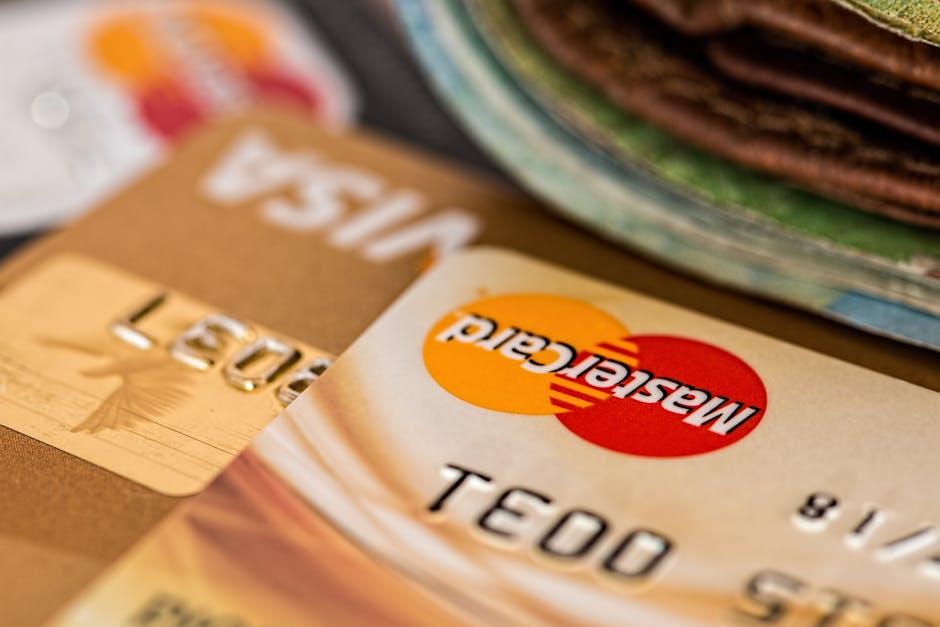Knock, knock. Who’s there? E-commerce. E-commerce who? Exactly.
In a world where your latest impulse buy is just a click away and the phrase “add to cart” mysteriously turns into “empty wallet,” navigating personal finances has become a wilder ride than a shopping spree on Black Friday. Ever since the dawn of online shopping, our wallets have been feeling the pressure—and our budgeting plans have taken a hit worse than your favorite team in the finals. But hey, at least we’ve got fast shipping, right?
Welcome to the brave new world of e-commerce, where the line between wants and needs blurs faster than a cat video on a slow internet connection. In this article, we’re diving into the ripple effect that e-commerce has on personal budgeting. Prepare for a journey through digital temptations, spontaneous splurges, and the challenges of maintaining some semblance of financial sanity in the age of Amazon Prime and endless flash sales. Grab a snack (that you didn’t order online) and let’s get started!
Understanding How E-Commerce Sneaks Into Your Wallet
Did you ever wonder where all your money went at the end of the month? One word: E-commerce! Buying things online makes it so easy to splurge, from flashy gadgets to cozy socks. But even though those impulse purchases deliver a hit of happiness, they also take a chunk out of your budget. Here are some sneaky ways e-commerce affects your wallet:
- One-click buys: Makes it super easy to purchase without a second thought.
- Flash sales: Limited-time deals create a sense of urgency to buy now.
- Subscription services: They keep charging you until you remember to cancel.
- Free shipping thresholds: Encourages you to add more items to qualify.
- Retargeting ads: Remind you of items you almost bought, tempting you to finalize the purchase.
Here’s a quick peek at how these online temptations can look visually:
| Strategy | Impact on Budget |
|---|---|
| One-click buys | Quick and frequent purchases |
| Flash sales | Unplanned spending |
| Subscription services | Monthly, recurring costs |
| Free shipping thresholds | Adding extra items |
| Retargeting ads | Impulsive buying |

The Unexpected Joys and Pitfalls of Online Shopping Sprees
Going on a digital shopping spree can be a thrilling experience. The convenience of buying anything from the comfort of your home while wearing pajamas can be downright delightful. Not to mention the flash sales, free shipping, and endless product choices that can make anyone feel like a savvy shopper. But while you’re adding items to your cart, you might be unknowingly adding zeros to your credit card bill. Let’s break down those unexpected joys and sneaky pitfalls of online shopping sprees.
- Joys:
- Browsing endless options without salespeople hovering over you.
- Receiving packages feels like getting little presents.
- Discovering quirky items you didn’t know you needed.
- Pitfalls:
- Impulse buys can lead to budget busting.
- Items might look different in real life than online.—Hello, disappointment!
- Return policies can sometimes be a nightmare.
When it comes to balancing those shopping joys and pitfalls, a good way to keep track is by using a budget plan. Here’s a quick look at a sample budget to help you stay on track:
| Category | Monthly Budget | Actual Spending |
|---|---|---|
| Groceries | $300 | $280 |
| Entertainment | $150 | $200 |
| Online Shopping | $100 | $250?? |

Mastering the Art of Taming Your Digital Shopping Cart
Imagine this: you’re cozy in bed, scrolling through your favorite online store when—bam!—an incredible deal pops up. You quickly add the item to your cart, and before you know it, you’ve got a shopping cart that looks like an online clearance aisle. Impulse buys can be fun, but they can also wreak havoc on your budget. Here are some tips to help you keep your digital shopping cart in check:
- Make a List: Treat online shopping like grocery shopping. Know what you need before you start browsing.
- Set Boundaries: Use tools to limit your spending. Apps like Honey or Rakuten can help you find deals but also track your spending.
- Wait Before Buying: Leave items in your cart for a day or two. You might realize you don’t need them after all.
Ever wonder what categories we spend the most on when shopping online? Check out this quirky table:
| Category | Average Spend |
|---|---|
| Clothing | $200/month |
| Gadgets | $150/month |
| Groceries | $100/month |
So, keeping your cart (and your budget) in check doesn’t have to be a chore. Just blend a bit of savviness, patience, and a pinch of humor to master the art of digital shopping without breaking the bank!

Penny-Pinching Tips for the E-Commerce Enthusiast
Shopping online can be tricky for personal budgeting, but it doesn’t have to drain your wallet. Get creative with saving strategies! Start by always comparing prices across different sites. Websites like PriceGrabber can help you make quick comparisons without getting frenzied over fluctuating prices. Also, make sure to subscribe to newsletters, but only for your favorite stores. This way, you’ll get exclusive deals without overwhelming your inbox with a million emails a day. Remember, abandoning your cart can sometimes result in a follow-up email with a discount code, so don’t be shy about a little digital window shopping.
Another sneaky way to save is by using browser extensions like Honey or Rakuten. These can automatically apply coupons at checkout or offer cash back on your purchases. It’s like having a tiny, digital fairy godmother. Free shipping should be non-negotiable; look for stores that offer it or find coupon codes that do. You can also consider ordering with a friend to hit the free shipping threshold. Lastly, don’t forget seasonal sales. Events like Black Friday and Cyber Monday are not just for big spenders but smart savers too. You might score amazing deals that can conquer your shopping list without conquering your budget.
| Strategy | Benefit |
|---|---|
| Price Comparison | Saves Money |
| Browser Extensions | Automatic Discounts |
| Free Shipping | Lower Costs |
| Seasonal Sales | Bigger Discounts |
Q&A
Q: How has e-commerce changed the way people budget their finances?
A: Ah, the wonders of e-commerce—it’s like a magical land where you can purchase a unicorn onesie at 3 AM without ever leaving your couch. But seriously, e-commerce has made spending a breeze and budgeting a bit of a challenge. People used to have to physically go to a store, creating a natural barrier to impulse buys. Now, with just a few clicks, that Himalayan sea salt lamp is yours! It’s made budgeting a more dynamic (read: complicated) process, requiring more vigilance and sometimes even new budgeting apps to help keep track of all those digital splurges.
Q: Are there financial benefits to shopping online?
A: Absolutely, yes! Online shopping can save you big bucks through discounts, promotional codes, and cashback offers. Plus, the convenience means you can price compare faster than you can say ”wait, how much is Amazon Prime?” Just remember, while saving money on unbeatable deals, you’re also more susceptible to buying things you didn’t even know you needed—such as banana slicers or wearable blankets. Balance is key!
Q: Does e-commerce make it easier or harder to track expenses?
A: Easier and harder—how’s that for a paradox? On one hand, digital transactions create a handy-dandy electronic trail. Every purchase is documented, making it easier to see where your money went (and possibly cry about it later). On the other hand, the instant-gratification nature of e-commerce can lead to more frequent purchases, which means more transactions to track. You might need to channel your inner Sherlock Holmes to keep up with it all.
Q: What are some common pitfalls people face when budgeting in the age of e-commerce?
A: Ah, the pitfalls are plentiful! Common traps include the “Sales Bermuda Triangle,” where discounts make you buy more than planned, and the “Free Shipping Mirage,” which lures you into buying extra just to avoid shipping fees. Then there’s the “Subscription Swamp” of monthly payments for services you forgot you signed up for. And let’s not forget about “Mystery Package Syndrome,” where you have no recollection of ordering the box that just arrived.
Q: Any tips for managing a budget while still enjoying the perks of e-commerce?
A: Certainly! First, establish a budget—yes, an actual budget—and stick to it. Use budgeting apps that track expenses in real-time and send you gentle (or harsh, if you prefer) reminders. Enable alerts for big spending days like Cyber Monday and Prime Day; consider them your “shepherd’s crook” to keep you in line. Also, make a habit of asking yourself, “Do I need this, or is this just going to end up in my closet next to the juicer I used once?” indulge occasionally, but don’t let e-commerce turn your budgeting into a comedy of errors!
Now get out there, budget smartly, and may your carts be ever in your favor!
Closing Remarks
as e-commerce continues to dominate our shopping habits, it’s clear that our personal budgeting strategies must evolve alongside it. The temptation of a “one-click” purchase can be as irresistible as the sirens luring sailors to the rocks, but with a little discipline, some smart financial tools, and maybe a few sticky notes on our monitors reminding us to “check the budget,” we can navigate these choppy digital waters. So, whether you’re a seasoned online shopper or just discovering the joys of doorstep deliveries, remember to shop smart and budget wisely. And hey, if all else fails, there’s always the age-old tactic of leaving your credit card in a block of ice! Happy budgeting, and may your online shopping cart always be full—of good financial decisions!


